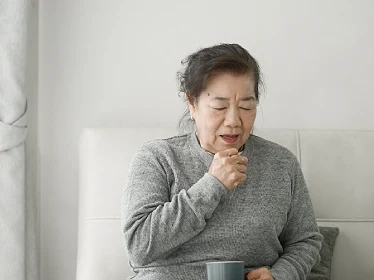
Regular sexual health screenings are not only about diagnosing issues early—they are also a means of taking charge of your body, making informed decisions, and cultivating healthier intimate relationships. Regular sexual health screening in Singapore also provides reassurance—knowing you've proactively managed your sexual health can alleviate anxiety and support a more confident approach to relationships.
This article delves into why annual or routine sexual health screenings matter, what to expect during such check-ups, and how to take advantage of Singapore's comprehensive healthcare infrastructure to safeguard your reproductive and sexual health.
Does routine sexual health screening matter?
A full sexual health screening in Singapore serves several key purposes: prevention, early detection, peace of mind, and self-awareness. It helps individuals better understand their own bodies, empowering them to make calculated, informed choices about their health and relationships.
Healthcare consultations during screenings offer valuable education about sexual and reproductive health. You'll receive information on fertility awareness, safe sex practices, and how different factors, including age and lifestyle, may influence reproductive health over time. By gaining clarity on your sexual and reproductive health, you are more equipped to openly discuss your goals, boundaries, and concerns with your partners.
Here's how sexual health screenings can be beneficial for your life
Early Detection & Prevention
Sexually Transmitted Infections (STIs), such as chlamydia, gonorrhoea, syphilis, and HIV, can often remain asymptomatic for long periods. Without symptoms, you might not realise an underlying problem until complications arise or you inadvertently transmit an infection to a partner. Early detection dramatically improves treatment outcomes. Many STIs, when caught early, are easily treatable with antibiotics or other medications. In the case of chronic infections like HIV, early diagnosis leads to timely interventions that can maintain a high quality of life, reduce viral load, and prevent further transmission.
Contraception Options & Guidance
Regular sexual health check-ups allow you to explore and adjust contraception methods based on your evolving needs and preferences. Healthcare professionals can guide you on various options, such as hormonal contraceptives (e.g., pills, patches, or implants), intrauterine devices (IUDs), or barrier methods (e.g., condoms and diaphragms). They can also address any side effects or concerns, helping you find the best method for your lifestyle and long-term health goals. Furthermore, screenings provide a chance to assess the effectiveness of your current contraception and adapt it as needed, such as transitioning to or from hormonal methods during significant life changes like family planning or menopause.
Reproductive Planning & Family Goals
Sexual health screenings offer an opportunity to discuss your reproductive goals with a healthcare provider. If you plan to start a family, screenings can detect any underlying conditions or infections that might impact fertility or pregnancy outcomes. This proactive approach can help identify and address issues like polycystic ovary syndrome (PCOS), hormonal imbalances, or sexually transmitted infections (STIs) that could affect conception. For those not yet ready for children, these screenings provide a foundation for making informed decisions about reproductive health.
Schedule your Sexual Health Screening
When should I go for a sexual health screening?
Sexual health screenings aren't solely for individuals who perceive themselves at high risk. Regardless of your relationship status—single, married, in a long-term partnership, or exploring new connections—if you are sexually active, routine check-ups are beneficial. Even those who engage in low-risk activities can encounter situations where STIs may be acquired.
Your sexual health needs may shift with age, relationship changes, or life events. Adolescents may begin by learning about safe sex practices, while young adults explore contraception and STI testing. Married couples might focus on family planning or fertility concerns. Middle-aged individuals could concentrate on menopause or prostate health, and seniors may address issues like erectile dysfunction or vaginal dryness. Regular screenings adapt to these changes, providing guidance and reassurance throughout every stage. No matter your life phase, taking proactive steps to understand and care for your sexual health remains important.
How often should I do a sexual health screening?
The frequency of screenings depends on personal circumstances. As a general guideline, many healthcare professionals suggest at least one screening per year for those who are sexually active. More frequent tests might be appropriate if you have multiple partners or recently started seeing someone new. Manage your sexual health needs in consultation with a medical professional who understands your lifestyle and needs.
Sexual health screening based on your life stage
Here's a guide to sexual health screenings in Singapore that are recommended at different stages of life.
 |  |
 |  |
 |  |
Your sexual health evolves as you age, and regular screenings play a crucial role in detecting infections, preventing complications, and maintaining overall well-being.
Addressing common myths and misconceptions
Sexual health screenings are crucial for maintaining overall well-being, yet myths and misconceptions often prevent people from getting tested. These misunderstandings can lead to undetected infections and long-term health complications. Let’s address and debunk some of the most common myths about sexual health screenings to encourage better preventive care.

Overcoming stigma and shame
A significant barrier to routine sexual health screenings is the discomfort or embarrassment some people feel. Cultural norms, personal inhibitions, or fear of judgment can deter individuals from seeking care. Yet, sexual health is part of your overall health, an integral part of human life. Just as you wouldn't hesitate to visit a doctor for a persistent cough, you shouldn't feel ashamed about getting tested to ensure that your sexual health is at its optimum.
Furthermore, healthcare providers in Singapore handle sensitive issues with professionalism and discretion due to their training and expertise. Clinics maintain strict confidentiality, ensuring your personal information and test results remain private. Over time, as more people normalise sexual health conversations, stigma dissipates. Embracing regular sexual health screenings in Singapore is a proactive step that empowers you rather than a source of shame.
Preparing for a sexual health screening
Sexual health screenings extend beyond detecting infections. They can include discussions about family planning, contraception methods, and general reproductive well-being. Annual check-ups offer an opportunity to address concerns about fertility, menstrual irregularities, or menopause. Men might consider prostate health or discuss erectile dysfunction if it’s a concern.
What to expect during a screening
A sexual health screening in Singapore is usually straightforward. During your visit, you’ll likely have a confidential discussion about your sexual history, any symptoms you might be experiencing, and your concerns. Your GP may recommend tests based on this information.
Common tests include:
Blood tests: To screen for HIV, syphilis, and sometimes hepatitis B.
Urine tests or swabs: To detect chlamydia and gonorrhoea.
Physical examinations: If symptoms like lesions or sores are present, a doctor might visually inspect the area.
These tests are typically quick and minimally invasive. Results are often ready within a few days to a couple of weeks, depending on the clinic and the tests performed. Healthcare professionals will advise on next steps if any infection is detected.
Facing positive results with courage
Receiving a positive test result for an STI can be distressing, but it’s essential to view it as a step forward rather than a setback. Early detection means early treatment, often preventing complications. Your medical doctor will be able to guide you through treatment options. It’s a chance to break the chain of transmission and protect your future well-being.Many infections are treatable, and with proper care, you can resume a healthy life. The key is not to panic. If you need emotional reassurance, lean on support systems—friends, partners, counsellors, or helplines.
Begin your journey to better sexual health management
Empowering yourself through knowledge & action
Annual sexual health screenings in Singapore are more than just a medical precaution—they are a powerful investment in your well-being. By prioritising your sexual health, you enhance your quality of life, build stronger, healthier relationships, and contribute to a culture of responsibility and mutual respect. In Singapore, access to high-quality healthcare and credible information makes it easier to take control of your health. Overcoming stigma, embracing routine screenings, and fostering open communication with partners and healthcare providers create a supportive environment where everyone can thrive.
Think of regular sexual health screenings as an essential part of self-care—just like exercising, eating well, or visiting the dentist.
Beyond screenings, adopting a preventive mindset is crucial. Use protective measures such as condoms, understand your partner’s health history, and stay informed about emerging STI risks. Vaccinations, like the HPV vaccine, provide additional protection by reducing the risk of HPV-related cancers and are recommended for both females and males in Singapore. Prevention not only safeguards your health but also strengthens the broader sexual health network within the community. By empowering yourself with knowledge and action, you protect your future and contribute to a healthier, more resilient society.




